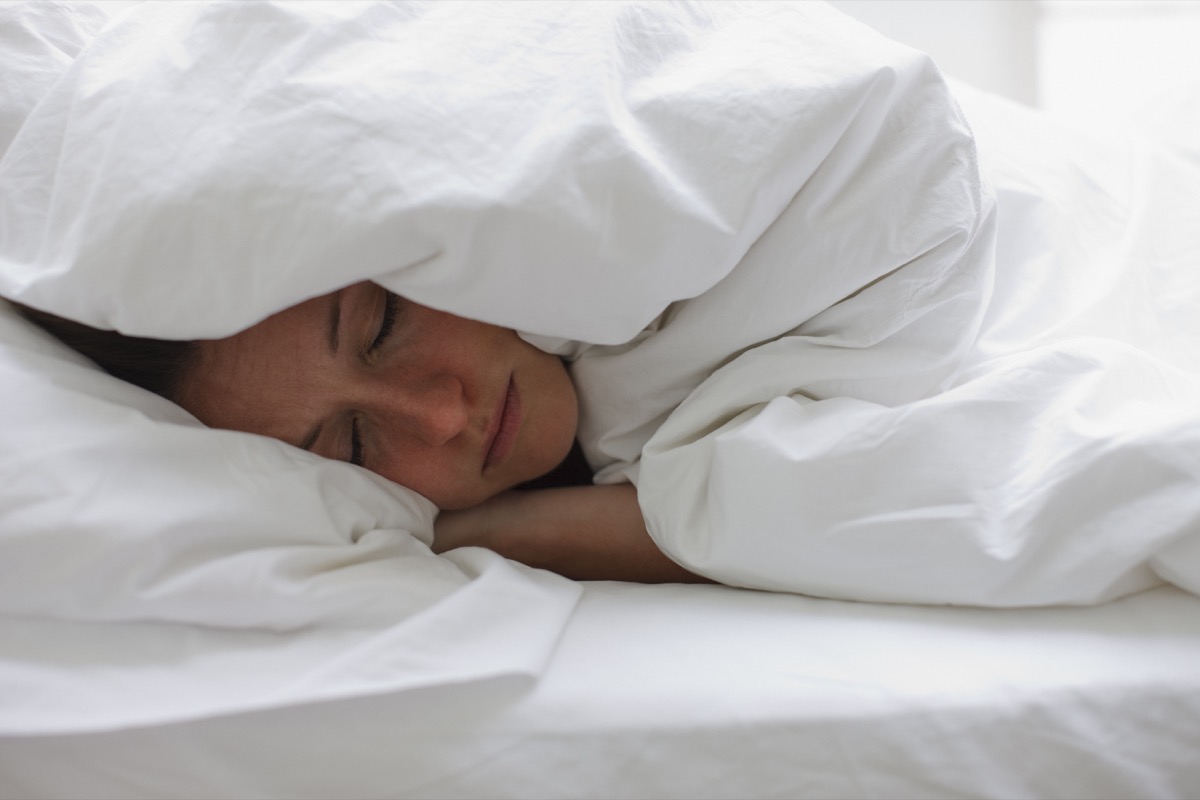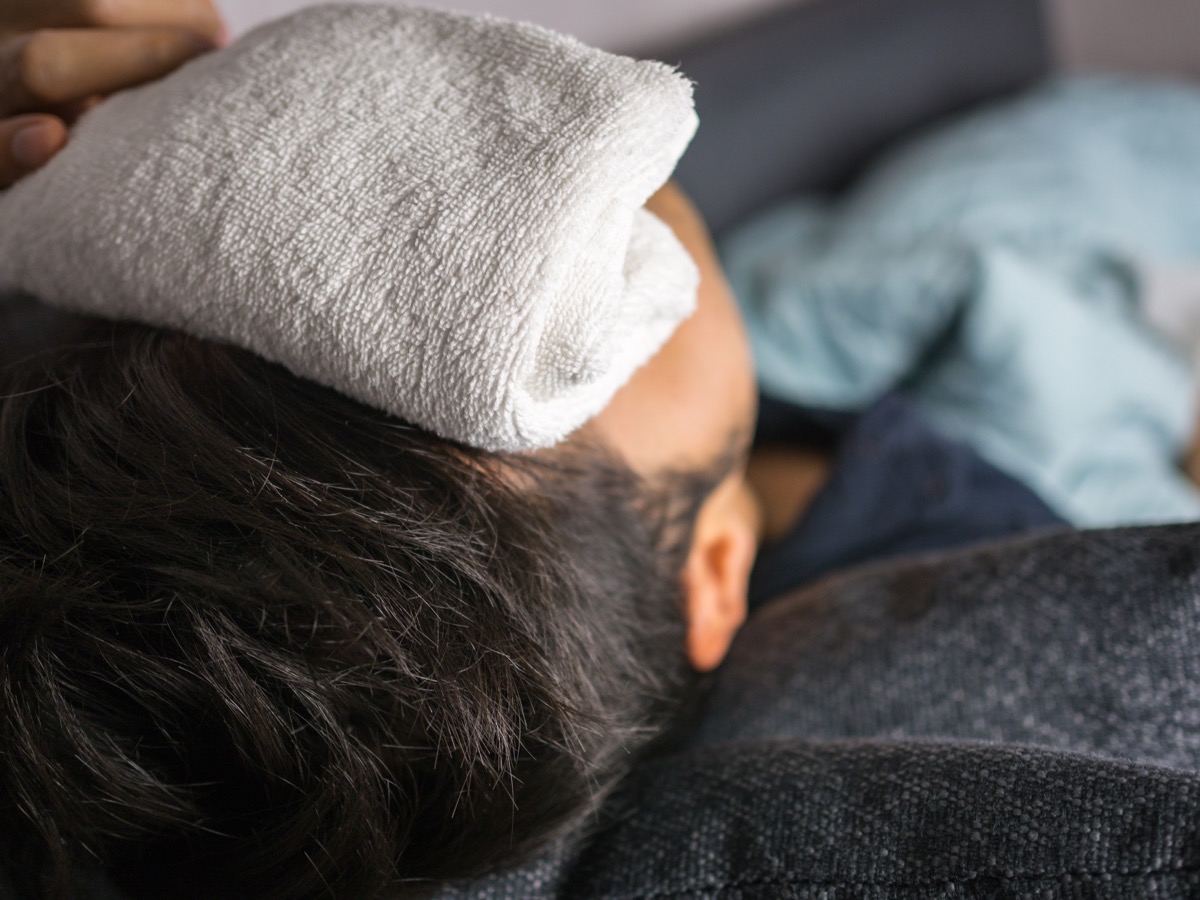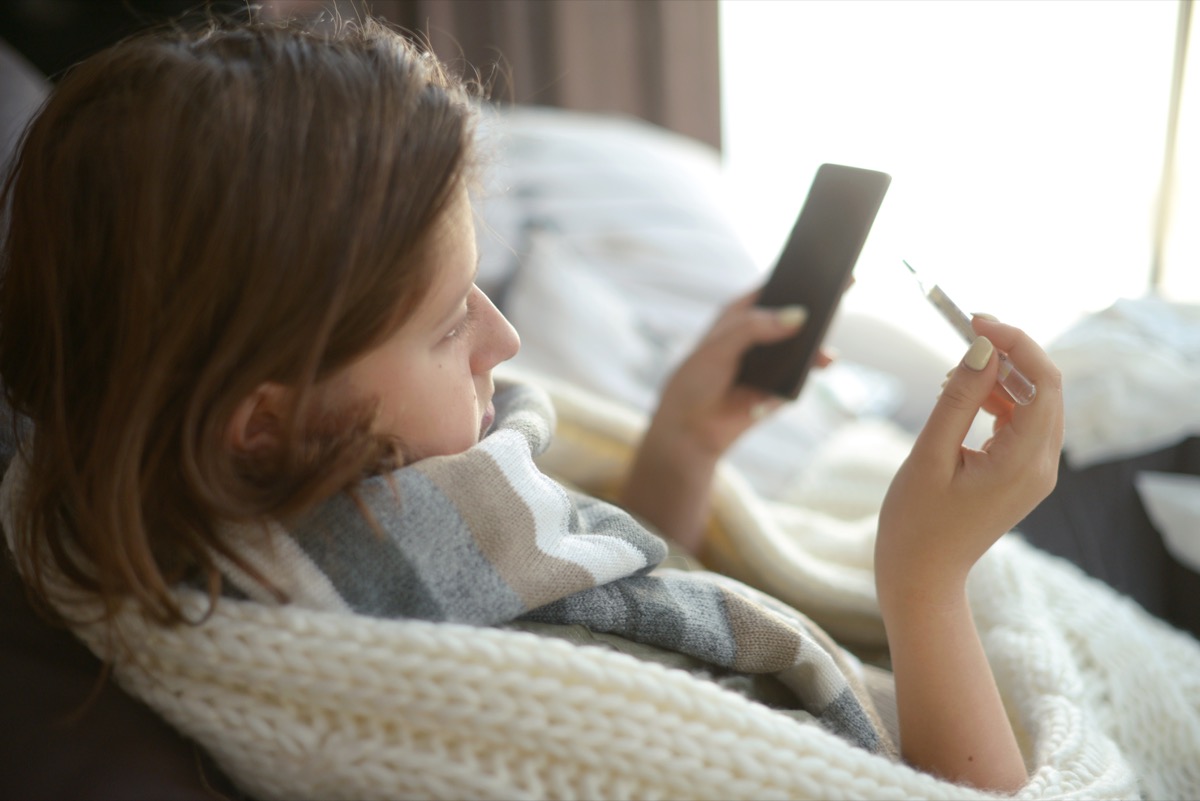These Are the Worst Things You Can Do if You Have a Fever

With the current COVID-19 outbreak, and with cold and flu season still taking its toll, a fever is not all that uncommon right now. However, whether your fever is simply the result of a cold or something more serious, there are certain things you may be doing that are actually making the situation a lot worse. To help you stay healthy, we gathered all the things you shouldn’t do if you have a fever, according to doctors.
1
Use too many blankets

Many people think they can “sweat out” their fever by piling several blankets on top of themselves. However, Lina Velikova, MD, medical advisor for Supplements101, says this is actually one of the worst things you can do.
“Overheating when you already have a fever can be dangerous or outright fatal in the worst-case scenario,” she says. “Instead, use just one warm blanket and have a fan nearby on low-speed to provide a light breeze. It’s important to not feel cold when you have a fever, but always remember the point is to cool off, not heat up your body even more.” And for more side effects of isolation, check out the the 7 Ways Being in Quarantine Has Been Bad for Your Health.
2
Put a cold towel directly on your forehead

Putting a cold towel directly on your forehead is the go-to method for most people when it comes to fighting a fever. However, it actually doesn’t help. And if that’s your only healing method, you could be making things worse by wasting time.
Velikova says the correct way to help lower your fever is to put the cold towel on your extremities. “Particularly around the ankles and wrists, since those are the pressure points in our body, which are sensitive to temperature changes due to the number of blood vessels next to the surface of the skin,” she explains. “The body will cool down more efficiently than if you put it directly on the forehead.”
3
Double up on your medications

You may think doubling up on your medications could help you get rid of a fever faster, but you’re only potentially hurting yourself. Dimitar Marinov, MD, an assistant professor who specializes in preventive medicine, says that acetaminophen—the primary ingredient in pain relievers like Tylenol—is only effective up to a certain point.
“Taking more than 1,000 milligrams at once will not provide further benefits but might cause serious liver damage or even a life treating condition,” Marinov says. “Also do not take more than 3,000 milligrams for 24 hours—for children, recommendations are half of that amount.”
4
Eat less than normal

There’s an old health myth derived from a classic saying that you can “feed a cold, starve a fever.” Marinov says this is not only untrue, but it’s also dangerous.
“Your metabolism actually increases when your temperature is higher because it is burning more energy for heat,” he says. “You should eat enough calories to support your immune system and also stay hydrated.” And for more untruths you need to stop believing, check out the 13 Actual Facts That Debunk Common Coronavirus Myths.
5
Try to suppress a low-grade fever

A low-grade fever (under 101 degrees Fahrenheit), Marinov says, actually presents little to no harmful health risks. In fact, it’s actually helpful because the fever is fighting off your sickness by boosting your “immune response” to create an “unfavorable environment for most bacteria and viruses,” he says. So, trying to suppress this type of fever with medicines or home remedies can actually stand in the way of it helping your immune system. And for more things to know about staying healthy, check out the 7 Bad Mistakes That Are Weakening Your Immune System.
6
Socialize with others

You shouldn’t be socializing with anyone when you have a fever, especially during a time of social distancing. Gary Linkov, MD, a facial surgeon in New York City, says that since a fever “may be due to an underlying viral or bacterial infection,” it can easily be transmissible to anyone you come in close contact with. And that viral infection you may be passing to friends or family could be something like the flu or the coronavirus. Instead, if you have a fever, stay at home and stay away from others.